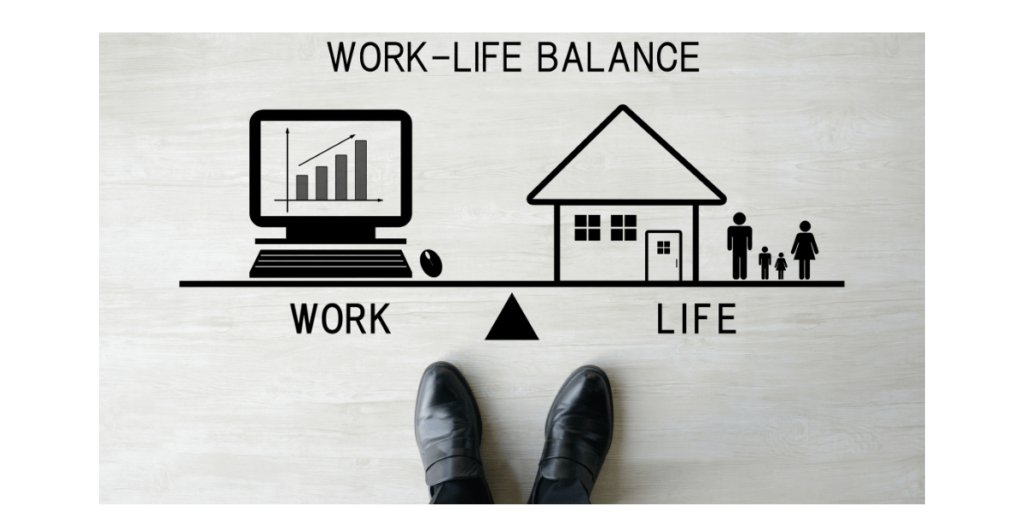Introduction: The Holistic Approach to Self-Care
In today’s fast-paced world, the term “self-care” is often tossed around, yet few truly grasp its profound importance. Self-care is not merely the occasional indulgence in activities that bring joy but a systematic, intentional practice for nurturing both physical and emotional wellbeing. It’s about the whole being, connecting the dots between what happens in your mind and how it affects your body and vice versa. The essence of self-care lies in understanding that your physical state and emotional health are deeply intertwined and must be looked after together for optimum health.
A holistic approach to self-care means taking into account various aspects of your life—diet, exercise, mental health, social connections, and spiritual practices. It’s about making choices that are beneficial for your overall wellbeing, not just in the short term but as a lifelong endeavor. This comprehensive viewpoint can help to preemptively address many issues before they snowball into more significant problems.
Many people struggle to integrate a holistic approach to self-care into their lives. With the demands of work, family, and social obligations, it can be difficult to find the time. However, understanding and implementing holistic self-care is an investment that pays dividends in energy, health, and happiness. Whether you seek to alleviate stress, improve your physical fitness, or cultivate inner peace, a holistic self-care plan can guide you towards achieving these goals.
In this article, we will explore how to master self-care through a holistic lens. We’ll delve into the interconnectedness of physical and emotional health, outline how to create a well-rounded self-care plan, and provide practical steps to build both physical and emotional resilience. Additionally, we’ll discuss the power of mind-body practices, the role of your environment, and the importance of establishing a support system. You’ll also find ways to overcome common challenges to maintaining holistic self-care.
The Interconnectedness of Physical and Emotional Health
Physical and emotional health are like two sides of the same coin. What affects one will invariably affect the other. This interconnectedness means that neglecting one aspect can lead to consequences in the other. For instance, chronic stress can lead to physical ailments such as hypertension and fatigue, while poor physical health can contribute to feelings of anxiety and depression.
Understanding this symbiotic relationship is the first step toward a holistic self-care practice. For example, regular physical activity not only helps to improve physical health by strengthening the heart and muscles but also releases endorphins, which can uplift mood and relieve stress. Conversely, adopting emotional wellbeing practices like mindfulness can positively impact physical health by lowering blood pressure and enhancing sleep quality.
A truly holistic approach requires you to address both physical and emotional health simultaneously. Achieving balance in one area can lead to improvements in the other. When you recognize that your body and mind are interconnected, you become more aware of how your daily habits and choices affect your overall wellbeing. This heightened awareness enables you to make informed decisions that benefit both your physical and emotional health.
Building a Holistic Self-Care Plan
Creating a holistic self-care plan involves thoughtfully considering all the domains of your life. It’s not about drastic changes but about integrating small, manageable steps that collectively have a significant impact. Here are fundamental aspects to consider:
- Physical Health – Aim to incorporate regular exercise, a balanced diet, and adequate rest into your daily routine.
- Emotional Health – Practice mindfulness, manage stress effectively, and create a supportive social network.
- Mind-Body Practices – Include activities such as yoga, meditation, or Tai Chi which promote balance and inner peace.
- Environment – Ensure your living space and surroundings are conducive to relaxation and wellbeing.
- Support System – Develop a network of supportive friends, family, and professionals like therapists or life coaches.
It’s beneficial to keep a self-care journal where you can track your progress, note areas that need more attention, and celebrate your accomplishments. This journal can also serve as a roadmap to identify patterns that may be affecting your wellbeing.
Finally, be flexible and kind to yourself. A self-care plan is not set in stone; it should evolve with your changing needs and circumstances. Adjust your plan as necessary and remember that self-care is not a luxury but a fundamental need for sustaining long-term wellbeing.
Physical Health: Exercise, Diet, and Rest
Physical health forms the foundation of holistic self-care. When your body is healthy, your mind is more likely to follow suit. However, achieving and maintaining physical health requires a balanced approach that includes exercise, diet, and rest.
Exercise
Exercise is vital for maintaining a healthy body and mind. It helps to regulate weight, improves cardiovascular health, boosts the immune system, and releases endorphins which elevate mood. Incorporate a mix of aerobic, strength training, and flexibility exercises into your routine to ensure a well-rounded fitness regimen.
Exercise Types
| Type | Benefits |
|---|---|
| Aerobic | Improves heart health and stamina |
| Strength | Builds muscle mass and enhances metabolism |
| Flexibility | Promotes muscle elasticity and joint health |
Diet
A balanced diet fuels your body and mind, enabling you to perform at your best. Consuming a variety of nutrient-rich foods helps to maintain energy levels, improve cognitive function, and support overall health. Focus on whole foods, such as fruits, vegetables, lean proteins, and whole grains.
Essential Nutrients
| Nutrient | Benefits |
|---|---|
| Proteins | Builds and repairs tissues |
| Carbohydrates | Provides energy |
| Fats | Supports cell growth and brain function |
| Vitamins | Supports immune function and energy levels |
| Minerals | Essential for various bodily functions |
Rest
Rest is often underrated but is crucial for recovery and overall wellbeing. Quality sleep helps to rejuvenate the body, improve cognitive functioning, and stabilize mood. Aim for 7-9 hours of sleep per night and adopt good sleep hygiene practices such as maintaining a regular sleep schedule and creating a restful environment.
Emotional Health: Managing Stress, Anxiety, and Depression
Emotional health is equally important as physical health and involves learning to manage stress, anxiety, and depression effectively. These emotional states, if left unchecked, can severely affect your overall quality of life.
Managing Stress
Stress is inevitable but can be managed effectively with the right strategies. Techniques such as deep breathing, meditation, and progressive muscle relaxation can help to reduce stress. Regular physical activity and maintaining a balanced lifestyle can also lower stress levels.
- Deep Breathing: Focus on slow, deep breaths to calm the nervous system.
- Meditation: Regular practice can enhance mindfulness and reduce stress.
- Progressive Muscle Relaxation: Helps to relieve physical tension caused by stress.
Managing Anxiety
Anxiety, while a natural response to stress, can become debilitating if excessive. Cognitive-behavioral techniques, regular physical activity, and adequate rest can help in managing anxiety. Additionally, practicing mindfulness and engaging in hobbies can provide relief.
- Cognitive-Behavioral Techniques: Restructuring negative thought patterns.
- Physical Activity: Regular exercise reduces the physical symptoms of anxiety.
- Mindfulness: Fosters a non-judgmental awareness of the present moment.
Managing Depression
Depression is a complex condition that requires a multi-faceted approach. Alongside professional medical help, self-care practices such as maintaining a routine, staying connected with loved ones, and engaging in physical activity can make a significant difference.
- Routine: A structured daily schedule can bring a sense of normalcy.
- Social Connections: Regular interaction with loved ones provides emotional support.
- Physical Activity: Exercise can alleviate some symptoms of depression.
Incorporating Mind-Body Practices: Yoga, Meditation, and Tai Chi
Mind-body practices provide an essential bridge between physical and emotional health. These practices promote relaxation, reduce stress, and enhance overall wellbeing.
Yoga
Yoga combines physical postures, breathing exercises, and meditation to enhance physical and emotional health. It improves flexibility, strength, and balance while promoting relaxation and reducing stress.
- Physical Benefits: Improves muscle strength and tone.
- Emotional Benefits: Reduces stress and enhances mental clarity.
- Routine: Integrate yoga into your weekly schedule for best results.
Meditation
Meditation involves focusing the mind on a particular object, thought, or activity to achieve a mentally clear and emotionally calm state. Regular meditation can reduce stress, improve concentration, and enhance self-awareness.
- Types of Meditation: Mindfulness, transcendental, and guided meditations.
- Benefits: Enhances emotional health, reduces anxiety, and improves focus.
- Practice: Even a few minutes daily can bring significant benefits.
Tai Chi
Tai Chi, often described as “meditation in motion,” is a practice that integrates slow, flowing movements with deep breathing and mindfulness. It improves balance, reduces stress, and enhances overall health.
- Physical Benefits: Improves balance and flexibility.
- Emotional Benefits: Reduces stress and anxiety.
- Routine: Practicing Tai Chi regularly yields the best results.
The Role of Nature and Environment in Self-Care
Your surroundings play a crucial role in your holistic self-care regimen. Being in a healthy, supportive environment, both indoors and outdoors, greatly impacts your wellbeing.
Nature
Spending time in nature can reduce stress, enhance mood, and improve overall health. Activities like hiking, gardening, or simply walking in a park can be rejuvenating.
- Benefits: Reduces stress, boosts mood, and improves physical health.
- Activities: Hiking, gardening, walking in parks.
- Frequency: Regular interactions with nature are recommended.
Indoor Environment
Your indoor environment should be conducive to relaxation and productivity. A clutter-free, well-organized space can reduce stress and enhance your mood.
- Decluttering: A neat space reduces mental overload.
- Natural Light: Improves mood and energy levels.
- Plants: Purify air and enhance wellbeing.
Social Environment
Surrounding yourself with positive, supportive people can greatly impact your emotional health. Cultivate relationships with friends, family, and communities that uplift you.
- Benefits: Emotional support, reduced stress, improved mental health.
- Actions: Foster positive relationships, avoid toxic interactions.
Creating a Support System for Holistic Health
A robust support system is indispensable for holistic self-care. It includes friends, family, and professionals who provide emotional, social, and practical support.
Family
Family members can provide emotional support and practical help. Communication is key to fostering a supportive family environment.
- Communication: Open, honest discussions are vital.
- Activities: Engage in family activities that promote bonding.
- Support: Practical help and emotional support.
Friends
Friends offer companionship and emotional support. Foster friendships that are positive and nurturing.
- Activities: Socialize regularly through shared interests.
- Support: Be there for each other in times of need.
- Balance: Maintain a healthy social life without overwhelming yourself.
Professionals
Mental health professionals, life coaches, and healthcare providers can offer expert guidance and support. Don’t hesitate to seek professional help when needed.
- Therapists: Provide emotional and mental health support.
- Life Coaches: Help in setting and achieving personal goals.
- Healthcare Providers: Ensure physical health is well-managed.
Self-Care Rituals to Enhance Daily Life
Incorporating self-care rituals into your daily routine can significantly enhance your quality of life. These rituals provide structure and comfort.
Morning Routine
Start your day with a routine that sets a positive tone. Incorporate activities like stretching, a healthy breakfast, and a moment of mindfulness.
- Stretching: Helps to wake up your body.
- Healthy Breakfast: Fuels your energy for the day.
- Mindfulness: Sets a calm and focused tone.
Midday Break
Taking a break in the middle of your day can rejuvenate you. Use this time for a short walk, light exercise, or a moment of relaxation.
- Short Walk: Refreshes your mind and body.
- Light Exercise: Boosts energy levels.
- Relaxation: A few minutes of deep breathing can reduce stress.
Evening Wind-Down
End your day with rituals that promote relaxation and prepare you for a good night’s sleep. This can include activities like reading, listening to soothing music, or practicing meditation.
- Reading: Helps to unwind mentally.
- Soothing Music: Calms the mind and body.
- Meditation: Prepares you for restful sleep.
Challenges and Solutions in Maintaining Holistic Self-Care
While holistic self-care offers numerous benefits, maintaining it consistently can be challenging. Here are some common challenges and strategies to overcome them.
Time Management
A significant challenge is finding the time for self-care amidst busy schedules. Prioritize and schedule your self-care activities as you would any other important task.
- Scheduling: Block off specific times for self-care in your calendar.
- Prioritizing: Identify the most crucial self-care activities and prioritize them.
- Multitasking: Combine self-care with other activities, like walking while on a call.
Motivation
Maintaining motivation for consistent self-care can be difficult. Set realistic goals and celebrate small achievements to stay motivated.
- Goal Setting: Break down your self-care plan into achievable goals.
- Tracking Progress: Use a journal to track your progress and celebrate wins.
- Accountability: Share your goals with a friend or join a support group.
Resources
Access to resources such as time, money, and support can be limiting factors. Get creative with free or low-cost self-care activities and seek community resources.
- Free Activities: Utilize parks, free online resources, and community events.
- Budget-Friendly Options: Cook at home, use public libraries, and engage in home workouts.
- Community Resources: Tap into local support groups and community centers.
Conclusion: Long-Term Strategies for Holistic Wellbeing
Mastering self-care through a holistic approach is a lifelong journey. By recognizing the interconnectedness of physical and emotional health, you can make informed choices that lead to sustained wellbeing.
The key to long-term success in holistic self-care is consistency and adaptability. Your self-care plan should evolve with your changing needs and circumstances. Regularly revisit and adjust your plan to ensure it meets your current goals and challenges.
Remember, self-care is not selfish but a necessary practice for maintaining optimal health and wellbeing. By investing in self-care, you are better equipped to handle life’s challenges and contribute positively to those around you.
Recap
- Introduction: The importance and definition of holistic self-care.
- Interconnected Health: The relationship between physical and emotional health.
- Self-Care Plan: Steps to build a comprehensive self-care plan.
- Physical Health: Exercise, diet, and rest.
- Emotional Health: Managing stress, anxiety, and depression.
- Mind-Body Practices: Yoga, meditation, and Tai Chi.
- Environment: The impact of nature and surroundings on self-care.
- Support System: Importance of a supportive network.
- Daily Rituals: Incorporating self-care into daily life.
- Challenges: Overcoming obstacles in maintaining self-care.
- Conclusion: Long-term strategies for holistic wellbeing.
FAQ
1. What is holistic self-care?
Holistic self-care is an approach that considers the whole person, including physical, emotional, mental, and spiritual wellbeing.
2. Why is self-care important?
Self-care is essential for maintaining overall health, handling stress, and improving quality of life.
3. How does physical health affect emotional health?
Good physical health can reduce stress and improve mood, while poor physical health can lead to emotional disturbances like anxiety and depression.
4. What are some simple self-care practices I can start with?
Start with exercise, a balanced diet, adequate rest, and mindfulness practices like meditation.
5. How often should I engage in self-care activities?
Consistency is key. Aim to incorporate self-care activities into your daily routine.
6. What if I don’t have time for self-care?
Prioritize self-care by scheduling it into your day and starting with small, manageable activities.
7. Can an unhealthy environment affect my self-care efforts?
Yes, a healthy, supportive environment is crucial for effective self-care.
8. How can I stay motivated to practice self-care?
Set realistic goals, track your progress, celebrate small achievements, and seek support from friends or professionals.
References
- Centers for Disease Control and Prevention. (2021). Physical Activity Basics. Retrieved from cdc.gov
- American Psychological Association. (2021). Understanding Chronic Stress. Retrieved from apa.org
- Mayo Clinic. (2021). Self-care: What is it? and Why is it important? Retrieved from mayoclinic.org



